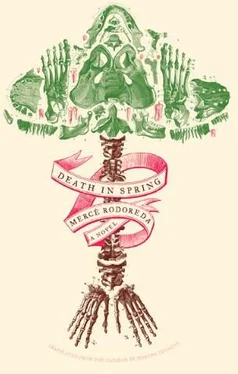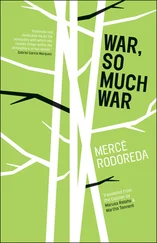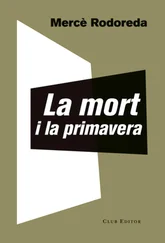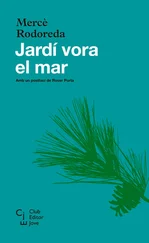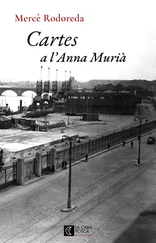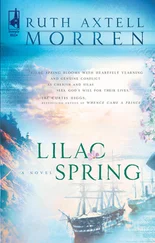Merce Rodoreda
Death in Spring
This translation is dedicated to Lawrence Venuti and Dolors Juanola.
I removed my clothes and dropped them at the foot of the hackberry tree, beside the madman’s rock. Before entering the river, I stopped to observe the color left behind by the sky. The sun-dappled light was different now that spring had arrived, reborn after living beneath the earth and within branches. I lowered myself gently into the water, hardly daring to breathe, always with the fear that, as I entered the water world, the air — finally rid of my nuisance — would begin to rage and be transformed into furious wind, like the winter wind that nearly carried away houses, trees, and people. I had sought the broadest part of the river, a place farthest from the village, a place where no one ever came. I didn’t want to be seen. With the mass of water descending from the mountains, snow and streams escaping the shadows through cleft rocks, the river flowed, confident of itself. All the waters joined together in the delirium of joining and flowed endlessly, land on both sides. As soon as I had passed the stables and the horse enclosure, I realized I was being followed by a bee, as well as by the stench of manure and the honey scent of blooming wisteria. The water was cold as I cut through it with my arms and kicked it with my feet; I stopped from time to time to drink some. The sun, filled with the desire to soar, was rising on the other side of Pedres Altes, streaking the white winter water. To trick the bee that was following me, I ducked under the water so it would lose me and not know what to do. I was familiar with the obstinate, seven-year-old bees that possessed a sense of understanding. The water was turbid, like a glass cloud that reminded me of the glass balls in the courtyards beneath the strong wisteria vines, the wisteria that over the years upwrenched houses.
The houses in the village were all rose-colored. We painted them every spring and maybe for that reason the light was different. It captured the pink from the houses, the same way it took on the color of leaves and sun by the river. Shut inside in winter, we made horsetail paintbrushes with handles of wood and wire, and when we had finished them, we stored them in the shed in the Plaça and waited for good weather. Then all of us, men and boys, would set out for the cave on Maraldina in search of the red powder we needed for pink paint. The mountain was covered with heather and crowned by the dead tree, and the wind whistled through the brush. We climbed down to the cave along a knotted rope that had been fastened to a stake. The man who led the way carried a lamp. We lowered ourselves into the damp, black well; it was streaked with veins that would glisten in the sun, then slowly extinguish as we moved deeper and darkness fell, swallowing everything. Through the well we entered the cave, which was like the mouth of the infirm: red and damp. We filled our sacks with powder, tied them tight, and the men who stayed above hoisted them up and stacked them, one on top of the other. When we returned to the village, we would mix the crimson powder with water to make the pink paint that winter would erase. In spring — the blossoming, blooming wisteria draping the houses, bees buzzing — we painted. And suddenly the light was different.
We would leave in the dead of night with the wind always blowing on Maraldina mountain. The ascent was difficult. We entered the cave through the well and left loaded with sacks, one after the other, like ants. From the slope coming down the mountain, we could see the horses grazing, but they were used only for food. We cooked the horseflesh over a log fire, especially at a funeral Festa. At the slaughterhouse, the blood man was in charge of the others, all of whom were too old to do anything but slaughter horses, and the way the old men killed the animals made the meat taste of nothing, nothing but wood. When we climbed Maraldina, the harrying wind would push us backwards, and when we descended with sacks on our shoulders, the wind pushed us upwards. Whether going up or coming down, the wind beat against us as if it were pressing its huge hands against our chests. The old men explained that the low wind on Maraldina blew through the brush when no one was on the mountain. It carried souls that wandered the mountain with the sole purpose of creating fierce winds whenever we went in search of powder, rendering our work more arduous. The wind was telling us that ours was a senseless job, something that was better left undone. Souls have no mouths, so they spoke to us through the voice of the wind.
We would leave our sacks in the middle of the Plaça, and soon thereafter begin mixing the powder with water and painting everything rose-colored. All of the houses were pink except one: the house that belonged to Senyor. He lived at the top of the small mountain that was cleaved by a cliff and overlooked the village, protecting and menacing. The cliff, topped by Senyor’s house, was covered with ivy that blazed in autumn and died soon after.
I craned my head out of the water. The light was stronger now, and I swam slowly, wanting to take my time before leaving the river. The water embraced me. It would have seized me if I had let it, and — pushed forward and sucked under — I would have ended up in the place where nothing is comprehended. Reeds grew in the river; the current bent them, and they let themselves be rocked by water that was carrying the force of sky, earth, and snow. I got out, the water dripping down my body, making my skin glisten. The bee that had followed me for a long time had finally lost track of me. I lay down on the grass, in the same spot where I had stood before, beside the madman’s rock. A dip in the ground, that had been formed by a man hitting his head, had been turned by the rain into a bath for a black-crested bird. The dark shadow from the forest in front of me quivered. We called this grass rosa de gos , dog rose. Spiders were spinning webs from leaf to leaf, and insects — tiny, dead, dried — were trapped in threads that turned grey on cloudy days. I pulled up a clump of grass. Its roots were white and specks of dirt hung from them. On the tip of a curly root dangled an almost perfectly round speck. I clasped the grass by the blades and made it dance about, from side to side, but the dirt clung to the grass. I placed it on my knee as if I were planting it. It was cool. After a while, when I picked it up from my knee, it was warm, and I shook it hard to watch the dirt fall. Then I planted it again. In front of me lay the forest, where the elderly went from time to time, and when they did, they locked us children inside wooden cupboards in the kitchen. We could only breathe through the stars on the cupboard walls, empty stars, like windows in the shape of a star. Once I asked a boy from the nearby house if he was sometimes locked inside the kitchen cupboard, and he said he was. I asked him if the door had two panels with an empty star on each side. He said, there’s an empty star, but it’s not large enough to allow much air in, and if the elders are long in returning, we start to feel ill, like we’re suffocating. He said he watched through the star as the elderly people set off, and after that he could see only walls and ashes. Everything conveyed a sense of loneliness and sadness. Even the walls grew sad and old when the elderly left them alone and all the children were locked in cupboards like animals. And what he told me about things was true: alone, they grew old quickly, but in the company of people they grew old more slowly and in a different way; instead of becoming ugly, they became pretty. The elders would return early in the morning, yelling and singing in the streets, and sleep on the floor. Often they would forget to unlock the cupboards and the children became ill, their backs aching even more than when their parents beat them in a fit of anger. The village was painted pink, yet people still grew anxious because of the horses, because of the prisoner, because of the weather, because of the wisteria, because of the bees, because of Senyor who lived alone in the house on the ivy-covered cliff that on late summer afternoons looked like a wave of blood. And because of the
Читать дальше
